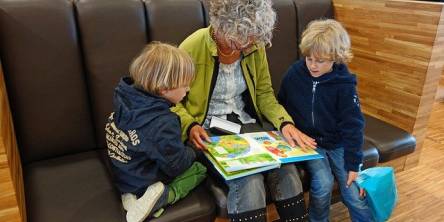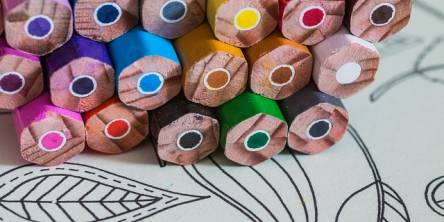8 Facts Every Parent Should Know About Infant Sleep
While the phrase 'sleeping like a baby' describes a deep, long, and uninterrupted sleep, it doesn't seem right with a real baby, perhaps because you're required to put a lot of effort into getting the baby to sleep and helping her stay asleep.
However, if you are well familiar with a few things related to infants' sleep, you can help your little one sleep better. Check out eight surprising facts about babies and their sleep:
#Babies Do Sleep a Lot
You may disagree, but it is a well-known fact that babies spend most of their time sleeping. According to studies, an average baby needs 16-19 hours of sleep a day for the healthy growth of his body and mind. However, as he grows, the duration of the sleeping time decreases. To make sure your little one will sleep better at night, try to keep her awake during the day.
#They Have Shorter Sleep Cycles Than Adults
As compared to adults, babies have shorter sleep cycles. An adult's sleep cycle lasts an average of 90 minutes; on the other hand, a baby's sleep cycle lasts around 45-60 minutes. Factually, short sleep cycles are also one of the main reasons why babies tend to wake up every hour or less.
#They Take Longer to Reach a Deep Sleep
If your little one often gets up and starts crying as soon as you place her in the cot, don't worry because it's natural. The fact you need to know is that it takes around 20 minutes for a baby to enter deep sleep. So next time, when you put your baby down to sleep, make sure she is in a deeper state of sleep.
#Night Wakings Are Important
Most parents want their little one to sleep throughout the night, but the fact is that night waking has its own benefits. Babies have a very tiny tummy that needs to be fed periodically. Night waking is such a survival skill that makes your little one wake up quickly whenever hungry or in pain.
#Darkness Influences Baby's Sleep
Keeping an infant's day bright and night dark helps him know the difference between day and night and provides him cues when to sleep. Lights evoke your child to wake up and be active, while darkness triggers the release of melatonin - a hormone that controls a baby's sleep and wake cycles. So let your baby enjoy plenty of light during the daytime and avoid strong lights at night.
#Babies Sleep Longer When Swaddled
All infants are wrapped up and swaddled in the hospital. Have you ever tried to figure out why? Simply because babies sleep longer when they're swaddled in ultra-soft baby blankets and quilts. By restricting the movement of arm and leg, swaddling helps infants enjoy a long and uninterrupted sleep. Babies love swaddling because it makes them feel secure and cozy similar to the mom's womb.
#Babies Learn in Their Sleep
When a baby is in light sleep, which is also known as the REM (Rapid Eye Movement) stage of sleep, blood flows to his brain dramatically, further increasing the production of various nerve proteins. According to sleep researchers, only the most crucial information is stored in a baby's mind during the REM stage. For this reason, babies learn things quickly while sleeping.
#Every Baby Is Different
And finally, all babies are different, and so are their sleeping patterns. Some babies sleep for longer stretches, while others take more time to adopt the bedtime routine and wake quickly during the night. So try not to compare your little one with other newborns as each enjoys his own sweet sleeping time.
Similar Articles
Although it may not seem like it, bullying is a daily problem. It can be very obvious, as it can also be hidden in comments or jokes that severely harm the affected child. To say that there is a school where this issue is not present would be a lie
What relationship do you have with the mirror? Do you like to see your reflection, the curves of your body, and the details of your face? Or do you reject your image because you don't consider it up to your standards?
The top mom blogs that share parenting ideas and unfiltered side of being a mother. You need information to help you fully know how to raise your kids.
A baby brings a lot of excitement and happiness into your life, but he also introduces you to plenty of stress and fatigue. Be it your first child or second, family life's daily pressures create a ton of strain and anxiety in your motherhood life.
People are acquiring patterns of behavior as we grow. These are not acquired magically: someone must teach us to be able to assimilate them into our moral code. Values are necessary so that our children, once they are adults, are socially adapted people and can have happy lives and achieve everything they propose
Who does not remember his childhood between pencils, markers, colors and drawings? Almost all children have enjoyed the coloring experience. We unleashed our imagination and creativity by painting and coloring. Coloring is a fun activity that many children enjoy, but do we know all the benefits of coloring in children? Let's see!
The uncertainty principles of life lead to all sorts of paradoxes, one of which is the process of ageing. It is not something you can shut your eyes on. Time flies like a fleeing bird from its open cage, and all the youth, energy, liveliness, dynamism, and strength of the person slips from his body like sand from a closed fist.
The day when you get to know that you are expecting, your mind starts to prepare your body for the future. With the changes in your body, your brain also starts to prepare for the days ahead. Pregnancy is indeed a difficult phase—mood swings, morning sickness, difficulty breathing and walking, etc. You get through all of this, thinking nothing can be more complicated than this.
With the first child, parents face new challenges - and need answers to completely new questions. Does baby water have any advantages? How do I replace milk meals with porridge? What should I pay attention to when looking for a baby swimming course?









